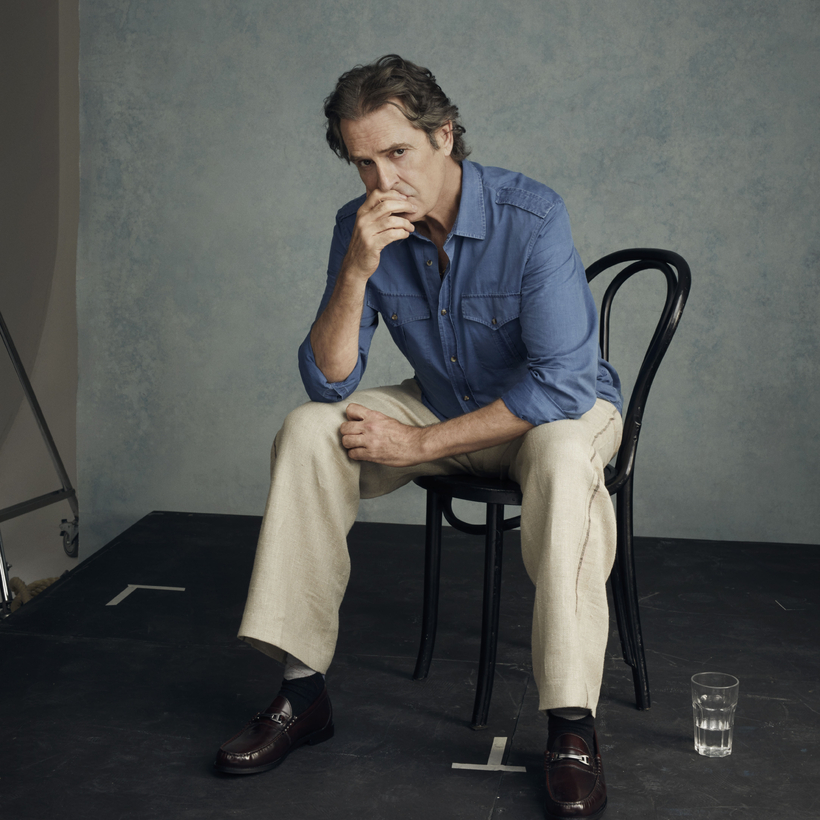Rupert Everett is 100 percent ready for death. “I wouldn’t mind it happening straight after this interview,” he says. He wouldn’t mind walking out of this restaurant with its black banquettes and white tablecloths into the steaming Soho afternoon and being knocked down by a London bus, he says. “Really. I’m serious. I love death. Everyone’s so worried about it, so afraid. But I always think that death sounds quite exciting. Especially when you think of everyone who has died.” Quick and painless is preferable. “Death by firing squad, for instance, looking them straight in the eye. Fabulous,” he leans back. “But without torture. I couldn’t do any torture beforehand.”
And then Everett does a back-pedal, which may be a disclaimer to soothe the easily offended, and says that, yes, he recognizes that the whole process of death isn’t very nice. “You know, chemo, radio. We all have friends going through that stuff and it is terrifying,” (although his friend Nicky Haslam, the designer, “adored chemotherapy”), and Covid-19 deaths are horrid. “I really didn’t like the idea of my poor 94-year-old mom dying alone in the hospital with everyone in masks.” And I have the sense of having arrived at the funfair and then having to backtrack the entire journey there on tiptoes.

